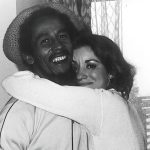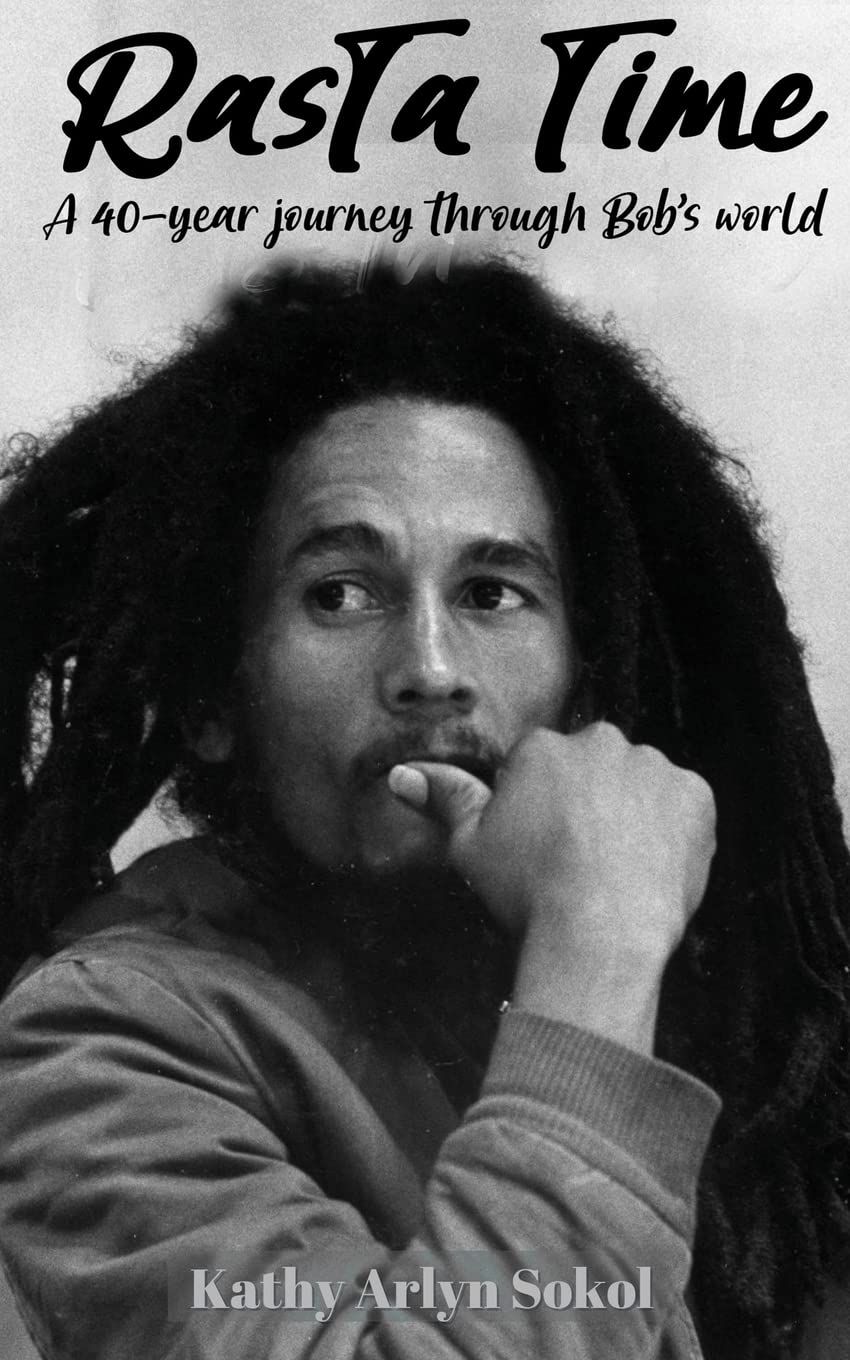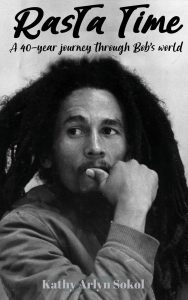“The mystical moments captured in this book I feel have all been curated by grandfather’s guiding spirit. Inspired gems that have somehow been hidden away in a time-capsule, waiting for the right moment… and it is now. RasTa Time!
“This book stands as a reminder, a testament, a call to action to journey deeper, to look longer, to fight harder, to live louder. To dance to Jah music in the fullness of the rising Sun, singing out your heart to the pulse of freedom. Jah Live! And we will never give up the fight!”
-Donisha Prendergast, granddaughter of Bob Marley
Time is our deepest mystery, our greatest desire.
Time, wherein we live our lives, imparts the value of our treasures, the measure of our ambitions.
Time also poses a paradox — never enough hours in the day, yet we have too much time on our hands.
The further we measure out our lives in clicks of clocks and crossed-out days on calendars, trying to stay “on” or “ahead” of time, the less spontaneous our lives become; and all the while, we know that however far ahead of time we may get for now, time will reclaim us inevitably; our “time” will be “up.”
But what if we lived in “deep” time, what Bob Marley called the mystic or what I call RasTa Time?
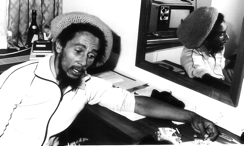
Mystic, which means to close the eyes, is derived from the Greek noun, mystes. For Bob Marley, however, it meant, “to open the eyes,” and look within; to become one with the force that is the true source of life, and experience or perceive unity with the divine. As Bob explained to me in our interview in Tokyo in 1979,
“We know our creation on earth is not a mistake…Everybody, everybody have life, you know, but the thing about life is that up to now nobody know how to keep it, you know. And we feel like all the material things that this here world might possess, I mean, without life, you wouldn’t have anything. But people tend to turn it the other way—put the material in front of life, you know what I mean? So you find that we have a rebellious thing going on there, because some people won’t accept the material things in front of life, they prefer life….To love and respect creation.”
Every child born has a higher potential intelligence than Leonardo da Vinci ever used, according to Dr. Glenn Doman, who over half a century ago established The Institutes for the Achievement of Human Potential. He has proven that through stimulation of the brain a greater capacity of the brain can be used, accelerating learning and creativity. Taking severely brain-damaged children and bringing their IQs up to those that equaled or surpassed “normal” children, Dr. Doman gave hope to millions of desperate parents around the world.
Despite arriving into this world with a fresh and open mind, every child soon undergoes what I refer to as “matriculation into mundanity,” when the reality-shaping processes of indoctrination and enculturation begin. Conformity from the outset is encouraged; deviation discouraged. Patterns of behavior are to be followed as patterns for behavior.
Schooling is a culture’s means of conditioning its young so that they fit into and support that culture. The functional purpose of schools is to “in-struct” or “in-form” so that we may conform, not to educate. Educate means to educe, to bring forth, and nourish the inherent possibilities of human development. Instead the child is mentally stunted by the sameness of the surroundings and the sameness of the information that is required to be learned; and worn down by the fatigue of sitting for hours in an uncomfortable chair in front of a tiny desk when they would prefer to be running, jumping, exploring. Learning is the most natural of human activities, which needs little coercion from outside forces. It is a natural process, which is the result of the active participation of an individual with their natural environment.
In Bob’s words:
‘Well, this guy, he was a baby, right? Mother bring him up in love, tender care, him start creep, then him walk. And him go to school and then him start grow up—let him start think for himself now. And then the things that they teach you to think about is not good. And if you don’t know that it is not good from early, later it going to be too late. Because you can’t just bend an old tree, might as well chop it down, you know. But if it’s a young tree, you can steer the young tree.
So, the people is not really, I mean, Yahweh say, a new generation have to, have to come, you know. Because it’s like this generation has drinked, drinked the whole wine already and are drunk.
The one has to have that truth within them, and the respect for life, you know. If everyone feel like life is not important, because that’s how them feel that life is not important, but we know that life is important, and we can be traitors to god, you know. We have to really defend the truth.
Rather than trust the intuitive voice that resides within all of us, our ordinary state of consciousness prefers the perfunctory sorting bits of reality so that they are in accord with our experience and expectation of them. We then compare those experiences with others to determine their validity. However, how reflective is that process of true reality? As I write this, the Physics Nobel Prize Winners of 2022, John Clauser, Alain Aspect, and Anton Zeilinger, just proved that the “Universe is not real.”
Children are not motivated to adjust to the reality of the world, rather they must adjust to the reality of those who mandate what reality is. Children are meant to reflect our commitments, our values, and perpetuate our culture, not to question their fundamental worth.
What then are the mechanisms which limit the profusion of ideas in society, and why are so many ideas like advanced pre-historic civilizations abhorrent to the status quo? Why do some ideas survive while others are peremptorily dismissed? Why do so many have to suffer for their bold ideas?
The names of those who stood alone in their beliefs are among the most illustrious in history: Galileo Galilee, whose championing of Copernican heliocentrism ended with him spending the last eight years of his life under house arrest. Nikolas Tesla experimented with wireless power transfer as early as 1890, and investigated what he referred to as radiant energy of “invisible” kinds, which presaged X-rays and microwaves, died disgraced and in penury. Today these individuals’ major contribution to our evolution is undisputed.
It is only when an individual goes beyond consensual thinking to deeply question commonly held assumptions is it possible to gain new insights that enable one to reevaluate them. The sustainment of a new view, however, requires vision and a sense of mission in carrying out that vision. Bob Marley had both. His music was his message and his mission, with his “movement of the people” or Rastafarianism, finding millions of adherents across the world, and continuing to grow.
Why are all these people coming up today? Anywhere you’re going you see Rasta. Somebody want to know what you’re saying. Some people don’t even know they are Rastas, but them is Rastas. Everywhere you going you meet them. So everything is coming, you know… You see when one ready, there’s a lot of people who’s ready. But this revolution will not be televised, it shall be telepathic, you know.
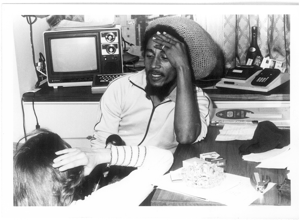
Bob Marley is an enduring prophetic phenomenon. No one could have imagined that 40 years after his death, his name, his music, and his message would be legendary across the globe. Of course, there have been times in history in which music has introduced movements into society, which were hitherto virtually non-existent. Think of Elvis or the Beatles. Or the ancient Chinese.
Music provides a framework that changes the way we view the world.
Under the effect of music, the five social duties are without admixture, the eyes and the ears are clear, the blood and the vital energies are balanced, habits are reformed, customs are improved and the empire is at complete peace.
-Yo Ki (Memorial of Music)
Ancient civilizations deeply revered music’s innate power to shape, mold and transform society. Music was hoisted to the loftiest of disciplines, as it was considered the primary determinant of our thoughts, actions and bodily health. It was thought to be the fundament of all matter and energy in the Universe, the source of Creation itself. Called Om by the Hindus, the Primal Sound by the Chinese, and the Music of the Spheres by the Pythagoreans, it was a vibratory essence. Spirituality, they believed, was literally a question of vibration; positive vibration, as Bob would say.
Musical performance was intricately linked with mystical ceremony, aligning humans with the rhythms and harmonies of the universe, and served to purify both performer and listener. If any reader has watched Bob Marley perform live on stage, you have witnessed the music, the message and the mystic merging as one, encircling you in its magic.
Rita Marley described what his performance was like:
When Bob was on stage he transcended into other heights. Sometimes we thought he would fly right off the stage. This is why his music is so powerful forty years after. He was lifted up by his spirit each time he went to perform, and each time I was standing by and it was apparent.
Music has the capacity to affect the awareness and perception of time, providing us total immersion in the moment. To the ancients, music not only could influence the mind and emotions, it could help shape worldly events, for all that exists was considered fundamentally vibrational in nature. The magic of the music was taken literally, as it had the power to change the nature of matter itself.
When there is revolution in the world, Bob Marley’s songs are the anthem. For the Independence Day ceremonies on April 17, 1980, Bob Marley flew the entire band, crew, and equipment at his own expense to perform for the millions of Rhodesians, awaiting the stroke of midnight and the birth of their nation, Zimbabwe.
Shadrack Gutto, who taught law in Zimbabwe for 12 years observed, “Bob Marley…articulated so well the importance of the role of culture and music in the liberation struggle.”
When I asked Bob if he had a message in his songs, he replied,
“the purpose of the music is to get up, to stand up for your rights, of course, you know. I mean, there’s no way that you can really sidetrack the truth and the reality of what’s happening around the earth, you know. So the music, I’ll do it …it is a music that can make you happy. You know. It can make you happy in a rebellious way, you know what I mean? If for the first time you might feel free for really express yourself in a, in a different way, you know. So the music, when you’re really into it is because you’re rebelling against the system, you know what I mean?
RasTa Time reflects upon the source and power of his message and its catalytic diffusion through the revolutions of our era.





